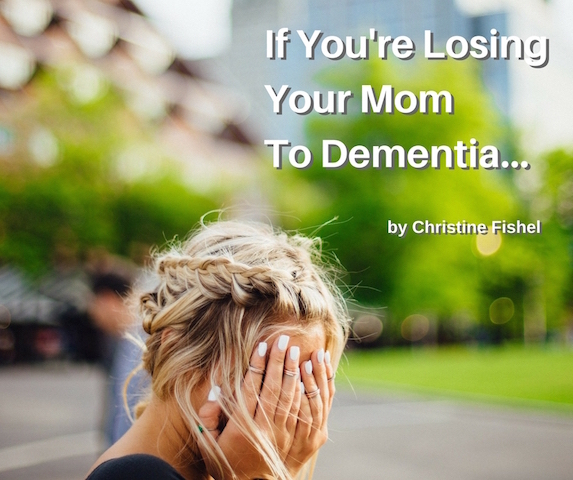By: Christine Fishel
If you are losing your mother to the horror of dementia, let me recommend a book I just read: Where the Light Gets In: Losing My Mother Only to Find Her Again by Kimberly Williams-Paisley.
Copyright 2016
When I am suffering through something difficult, I find solace in the stories of those who have gone before me on the same journey. I scour the public library and online bookstores for fiction and non-fiction stories of others’ experiences. I guess I want to know if what I’m feeling is normal. I want to know I’m not alone. This book gave me just that. Here are just a few of the many things that Williams-Paisley taught me as she shared her story:
Each family member may respond to the tragedy of your mom’s illness differently.
[My sister] Ashley dove into research in a way that no one else had the guts to. She wanted to live out the journey we were facing before it happened so that she could be better prepared when it came.” (p. 72) Another family member responded by focusing on statistics, reducing the illness to numbers that could be analyzed and understood. Still another used work and family as a distraction in the hope that things wouldn’t be as bad as the doctors warned.
Your mom may become someone you barely recognize.
“…as Mom’s illness began to overtake her, dementia distracted her view of the world and erupted as extreme sadness, rage, and fear. Gradually I lost sight of the mother I used to know. I was shocked by the woman who seemed more and more alien.” (p. 14)
Watching your mom’s mental deterioration will absolutely break your heart.
She may struggle to identify the date on a calendar or add simple numbers, and she may believe she just needs to work harder. “Her determination broke my heart. Even the purpose of numbers didn’t make sense. She blamed herself for not understanding. She thought that if she could just tough it out, try just a little harder, she could overcome the challenges of her daily life.” (p. 134-135)
As brutal as this is, there are also moments that are simply beautiful.
Your mom may experience and display a childlike joy and appreciation.
“Her scrutiny of me had disappeared, replaced by an endearing show of humility and happiness. …Her illness gave her a surprising gift: an intense joy that probably came from decreasing self-awareness.” (p. 107)
You can still have a relationship with your mom.
“When I let go of my tight grip on expectation, I found I could still have some sort of relationship with my mother. I could share love with her in a beautiful new way.” (p. 209)
You will be changed. And that’s not a bad thing.
“My mother is not only presenting me an opportunity to love unconditionally, she’s also allowing me to practice being comfortable with what is uncomfortable. To grieve and also embrace what is broken. To know that some days I can receive who my mother is now and some days I struggle with it. To allow that two opposing thoughts may exist in my head at the same time.” (p. 236)
I’m grateful for Kimberly Williams-Paisley for writing this book, for allowing me to travel the difficult journey with her, for sharing some hard-learned wisdom with me, and most importantly for letting me know I’m not alone.


